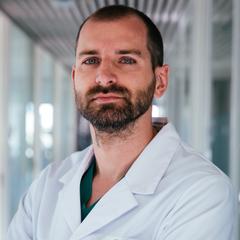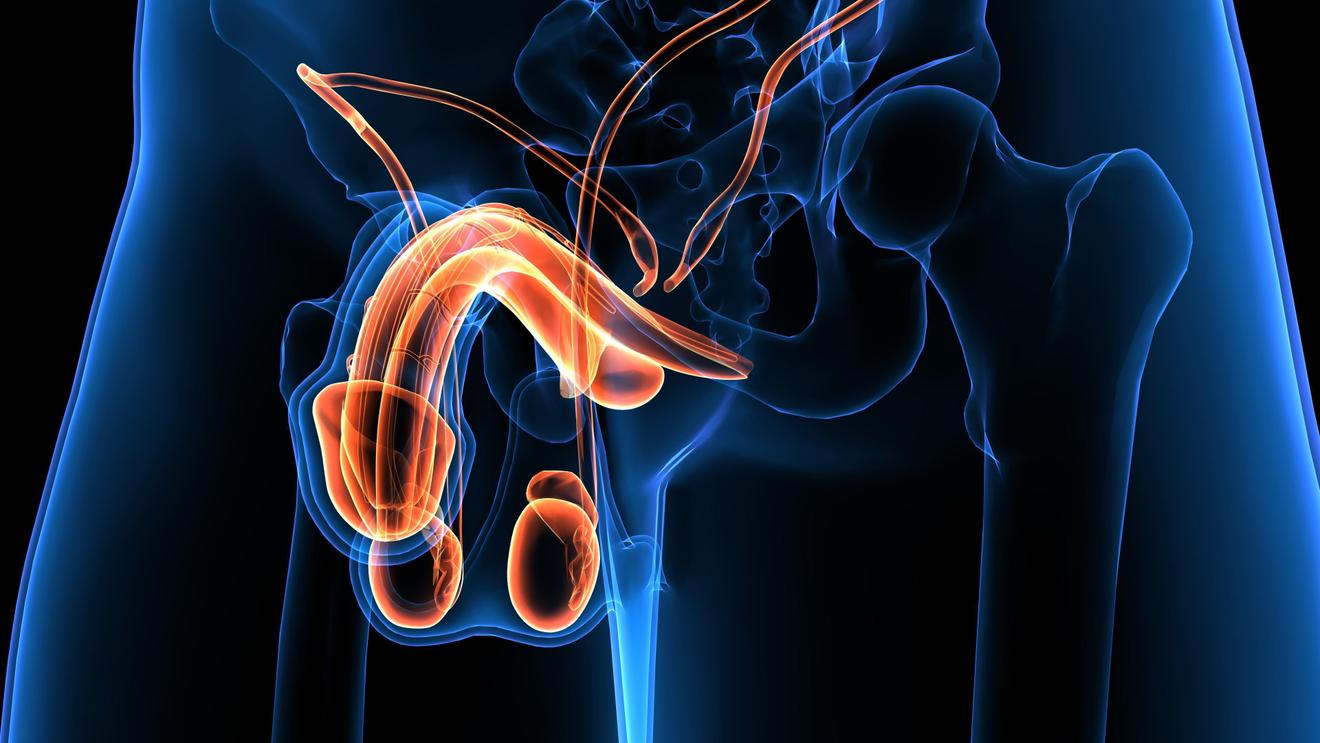Penile cancer is often discovered in a late stage. In general the disease is still little known to healthcare providers. As a result, symptoms are sometimes missed or mixed up with other problems, such as a fungal infection. Shame can also play a part in why patients seek medical help in a late stage.
Reference centre
Every year about a hundred Belgian men are diagnosed with penile cancer. About 60% of the patients are treated at UZ Leuven, but this was not always the case, according to prof. dr. Maarten Albersen (urologist at UZ Leuven): “In Belgium there is no government requirement for centralisation of care for penile cancer. To optimise the care for patients with this rare type of cancer, my colleagues and I have taken the initiative to set up a standardised care path and related research programme in 2015. I took an intensive training to become specialist. In addition UZ Leuven communicates with the urologists, oncologists and radiotherapists in the area about the advantages of treating patients as much as possible in one location.”
As a reference centre UZ Leuven covers almost the whole of Flanders, and it is expected that more centres will start referring their patients in the coming five years.
Thanks to centralisation it's easier to assess which patients needs which combination of treatments. Prof. dr. Maarten Albersen
Prof. dr. Maarten Albersen
More penis-saving techniques
Recent research has shown that centralisation of care leads to more organ-saving surgery in penile cancer, without it being linked to an increase in complications. Professor Albersen: “It is true that we can now retain a larger part of the penis than before. When it concerns a superficial tumour, we kan remove the skin from the glans and replace it by a bit of skin from another part of th patient's body. That bit of skin we call 'graft'. Sometimes we remove the glans completely and replace it by a graft with skin of the leg. As a result, patients not only retain an aesthetically 'normal' penis, but also their sexuality and the ability to urinate standing up. In terms of quality of life, this is quite a big step forward.”
The type of treatment also depends on the stage of the cancer. Eg. patients with a tumour ingrowing in the corpora cavernosa cannot be offered these penis-saving techniques. Unfortunately, there are still patients in whom we have to remove the whole, or half of the, penis.
“If the penis is limited to the penis itself, a surgical procedure will be sufficient. For more extensive tumours, such as the ones with metastases in the lymphe nodes, we apply another type of treatment, or combination of treatments, such as surgery, radiotherapy, chemotherapy and/or immunotherapy. Centralisation also plays a role here: we can better assess which patient needs which combination of treatments.”
Survival
Recent data from the Netherlands, where the care for penis cancer has been centralised for a while now, show that the survival rate improves significantly (with 30 per cent) with centralised care for this rare type of cancer. “In Belgium we can also see this signal,” prof. Albersen says, “but so far less pronounced, maar tot nu toe minder uitgesproken, mainly because in Belgium we started centralising more recently.”
Seeking medical help
Finally, prof. Albersen stresses that seeking medical help is nothing to be ashamed about: "Consult a doctor in time if you notice anything unusual about your penis. There is absolutely nothing to be ashamed about. It is wiser to visit the doctor early or even twice than to wait until it is too late."
Centralising care
Centralising care means concentrating medical care and treatments for certain disorders or patient groups in a specific location of specialised medical centre. The goal of centralisation is to improve quality of care by pooling expertise and means in one location.
